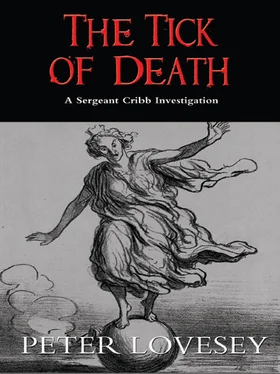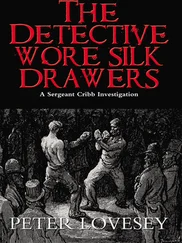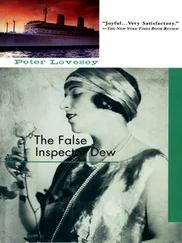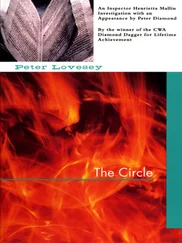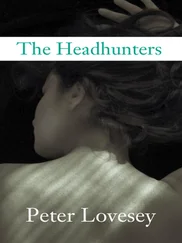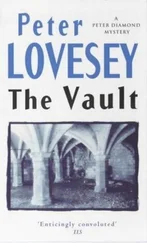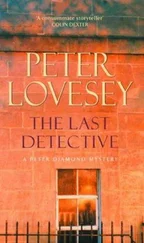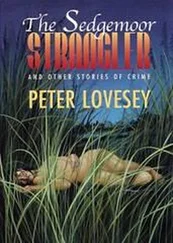Peter Lovesey - The Tick of Death
Здесь есть возможность читать онлайн «Peter Lovesey - The Tick of Death» весь текст электронной книги совершенно бесплатно (целиком полную версию без сокращений). В некоторых случаях можно слушать аудио, скачать через торрент в формате fb2 и присутствует краткое содержание. Жанр: Исторический детектив, на английском языке. Описание произведения, (предисловие) а так же отзывы посетителей доступны на портале библиотеки ЛибКат.
- Название:The Tick of Death
- Автор:
- Жанр:
- Год:неизвестен
- ISBN:нет данных
- Рейтинг книги:3 / 5. Голосов: 1
-
Избранное:Добавить в избранное
- Отзывы:
-
Ваша оценка:
- 60
- 1
- 2
- 3
- 4
- 5
The Tick of Death: краткое содержание, описание и аннотация
Предлагаем к чтению аннотацию, описание, краткое содержание или предисловие (зависит от того, что написал сам автор книги «The Tick of Death»). Если вы не нашли необходимую информацию о книге — напишите в комментариях, мы постараемся отыскать её.
The Tick of Death — читать онлайн бесплатно полную книгу (весь текст) целиком
Ниже представлен текст книги, разбитый по страницам. Система сохранения места последней прочитанной страницы, позволяет с удобством читать онлайн бесплатно книгу «The Tick of Death», без необходимости каждый раз заново искать на чём Вы остановились. Поставьте закладку, и сможете в любой момент перейти на страницу, на которой закончили чтение.
Интервал:
Закладка:
‘Well, Mr Sargent, it’s time you accounted for your interest in Malone.’
‘Might I first inquire where we are going?’
‘Not Scotland Yard, anyway,’ said Devlin. ‘I’m taking you to meet somebody who’ll be interested to hear about the goings-on at Lillie Bridge and Arundel Place this afternoon.’
‘Mr Malone?’
‘Somebody more important than that, Mr Sargent. Now, then!’ He waved the gun in a menacing way. ‘What do you want with Malone?’
This time, Cribb did not make the quick response expected of him. Without realising it, Devlin had just forfeited the chance of extracting information from his prisoner. He had told Cribb the purpose of the journey, admitted the existence of a ‘more important’ person. This at once diminished his own status. Before, the threat he represented to Cribb was limitless; he might have been judge, jury and executioner himself. Now, he was revealed as a humble escort, whose first duty was to deliver the prisoner to his superior.
‘I’ll explain it all when we get there,’ said Cribb, good-humouredly. There was nothing to be gained from baiting Devlin. He would do what he could to keep the conversation on a civilised plane. ‘There’s a lot to tell, and I wouldn’t want to have to repeat it all when we got there. Might miss something out the second time, and that wouldn’t do, would it?’
Devlin frowned, unprepared for this development.
A siren sounded outside.
‘Ah! Steamship on the right,’ said Cribb. ‘This must be the Embankment. Am I right? The surfaces of these new roads produce a most distinctive sound when carriage wheels pass over them, don’t you agree? The Strand just now had quite a different resonance.’
Devlin had the uncomfortable look of one who had lost the initiative without understanding how. He gripped his gun until his knuckles whitened. ‘Right turn, then,’ said Cribb, so patently ridiculous in top hat, shirtsleeves and unsupported trousers that Devlin’s capitulation appeared pathetic in the extreme. ‘We’re crossing Blackfriars Bridge. See if there isn’t a whiff of whelks from the stalls on the other side.’ As self-appointed guide, he launched into a commentary on the route, using whatever information reached his ears and nostrils. And there appeared to be so many identifiable breweries, leather-markets and gasworks south of the Thames that Devlin might as well have put up the blinds and abandoned the pretence of a secret destination. As they crossed the wind-swept expanse of Blackheath, Cribb actually went so far as to suggest a halt. ‘There’s Shooter’s Hill to come, and I’m beginning to fear for the health of the horse. These old hacks ain’t used to ten mile journeys, you know. Even the buses change animals to get up Shooter’s.’
Devlin’s eyes had suddenly become redder and distinctly narrower at the edges. ‘Sargent, it ill-becomes an Irishman to stifle conversation, I know, but if you don’t stop that bell-clapper of yours this minute I’ll blow your bloody brains out.’
It seemed a strong response to a mild inquiry on behalf of a dumb animal, but Cribb judged it prudent not to pursue the point. There was quiet satisfaction a few minutes later when the driver made an unprompted stop.
‘Don’t attempt to open that door, Sargent,’ Devlin warned.
A pained look appeared on Cribb’s face. ‘Dressed like this?’
They passed through Bexley and Dartford before the sameness of Watling Street was exchanged for a more winding route in the direction, Cribb estimated aloud, of Gravesend. Whether he was right he did not discover, for after three-quarters of a mile the carriage left the tar macadam for a cart-track. The jolting in consequence was not only extremely uncomfortable; in Cribb’s position, it was downright dangerous. The trigger-mechanism of an American Smith and Wesson revolver, he kept assuring himself, required strong pressure from the finger. The things didn’t usually fire involuntarily, but then they weren’t usually handled by hammer-throwers in agitated carriages. The relief after this of moving on to a stretch of level gravel was so exquisite that when the carriage presently stopped, his hand went unthinkingly to the door-handle.
‘Don’t touch it!’ Devlin almost screamed. ‘Pick up your things and wait until you’re told to move.’
He obeyed, wishing there were some way of conveying that he had not the slightest intention of escaping. Now that he had got over the shame of being taken by surprise in Arundel Place, he could see advantages in his situation. It was uncommonly decent of the dynamiters to have arranged a cab for him. Goodness knows how long it would have taken otherwise to locate their headquarters. He needed only to keep his nerve, give a plausible account of himself, and the secrets of the dynamite conspiracy were there for the taking-among them, of course, the mystery of Thackeray’s disappearance. Indeed, the only points of outstanding concern to him were those on which he would shortly have to put his stockinged feet; but even that anxiety proved to be shortlived, for the cab unexpectedly began to move again, and he shortly felt the wheels move off the gravel on to a smoother surface, and stop.
Devlin let up one of the blinds to reveal a dazzling, whitewashed wall. He kept the gun trained on Cribb, and felt for the cord on the other side. The blind went up with a disquieting snap. Cribb glanced outside. They were drawn up alongside a gig, in what appeared to be a coach-house of considerable size. ‘Open the door and get out,’ Devlin ordered. ‘And go carefully, Mr Sargent. The gun will be pointing at the middle of your back.’
Cribb turned the handle and pushed open the door. With one hand gripping the waist-band of his trousers and the other supporting his bundle of clothes, he stooped to descend from the carriage without dislodging his hat, a singularly difficult manoeuvre.
‘I’ll render some assistance,’ Devlin’s voice volunteered from behind him. He felt the silk hat lifted gently from his head, followed at once by a staggering impact on the back of his skull. He pitched forward like a felled tree. There was no shock of pain, no frantic reaching out with the hands to break the fall. His one immediate reaction was to conclude- with extraordinary clarity and conviction-that he had not convinced Devlin of his willingness to co-operate. Damned unfortunate, that. He hit the ground and lay still.
The pain soon took over, the sensation of a clamp tightening turn by turn on his skull, a soreness in his left shoulder, which had struck the ground first, and a throbbing in his side, where Devlin had savagely kicked him after he fell. Instinctively he remained immobile, feigning loss of consciousness. More than once, as a young constable, he had been compelled to use this stratagem in public house brawls; the secret of a long career in the Force was recognising the moment when to retire from hostilities, and knowing how.
He heard Devlin talking to the driver, instructing him to unstrap the horse and water it. The man and his four-wheeler were evidently installed here at the disposal of the dynamiters. Devlin, presumably, had been driven to Lillie Bridge for the hammer-throwing, and had decided after his conversation with Cribb to drive round to Arundel Place. The carriage had looked like any other growler plying for hire in London’s streets-which was perhaps convenient if you were interested in depositing infernal machines about the metropolis.
The sound of the horse’s hooves receded. Devlin’s footsteps approached to within a yard of Cribb. Lying there under inspection, not knowing whether to expect a bullet or another brutal kick, tested his self-discipline to the limit. He heard the movement of cloth close to his ear and knew Devlin was crouching for a closer examination. Under his closed eyelids he rotated his eyeballs upwards, a sensible precaution, for within seconds he felt a thumb on the right lid, pulling it up to check the state of insensibility. This must have satisfied Devlin, for he stood upright again and walked across the coach-house.
Читать дальшеИнтервал:
Закладка:
Похожие книги на «The Tick of Death»
Представляем Вашему вниманию похожие книги на «The Tick of Death» списком для выбора. Мы отобрали схожую по названию и смыслу литературу в надежде предоставить читателям больше вариантов отыскать новые, интересные, ещё непрочитанные произведения.
Обсуждение, отзывы о книге «The Tick of Death» и просто собственные мнения читателей. Оставьте ваши комментарии, напишите, что Вы думаете о произведении, его смысле или главных героях. Укажите что конкретно понравилось, а что нет, и почему Вы так считаете.
